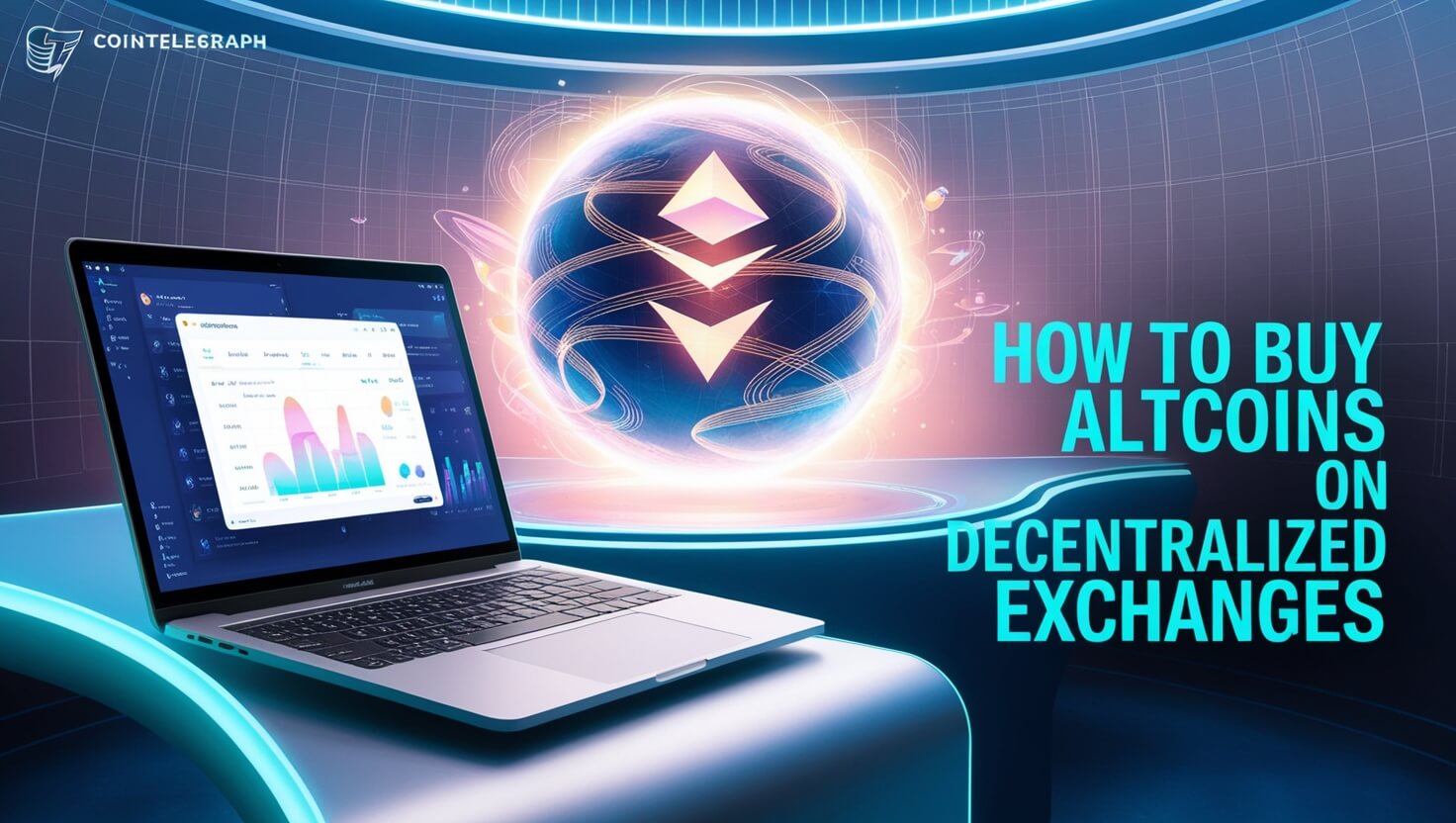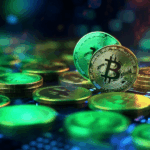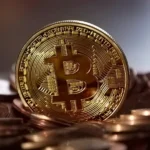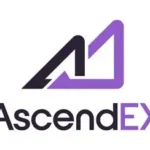In this article, I will talk about How to Buy Altcoins on Decentralized Exchanges.
With DEXs, you may trade cryptocurrency directly from your wallet without having to trust a third party, and the platform is highly safe and easy to use.
I will walk you through the necessary steps, starting from wallet creation all the way to your first purchase, so that you have a pleasant trading experience.
About Decentralized Exchanges?
Decentralized exchanges (DEXs) are platforms facilitating trades of cryptocurrencies between users directly without an authority or intermediary facilitating the process.
Unlike centralized exchanges (CEXs) where user funds are confined within the platform, DEXs allow users to have full control over their funds at all times through self-custodial wallets.
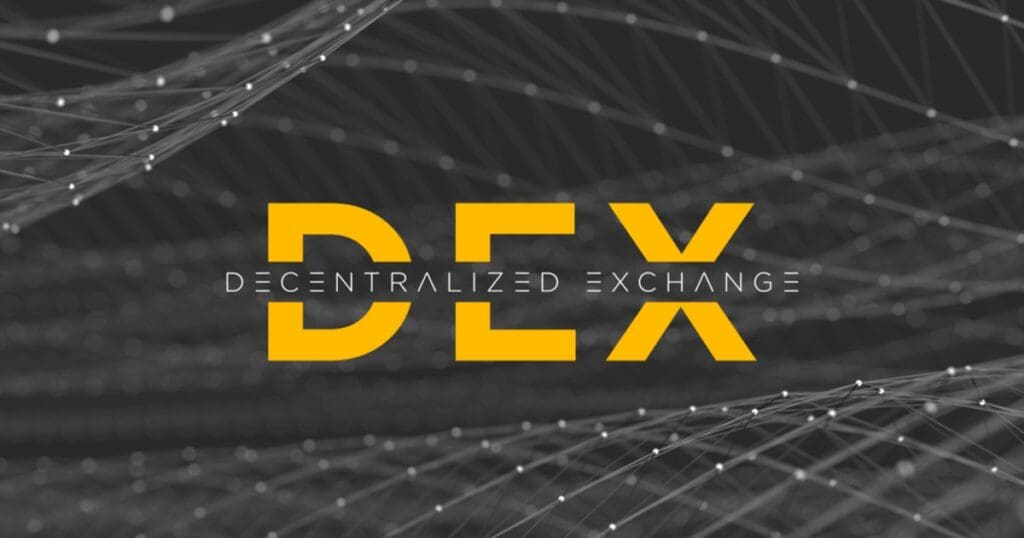
DEXs run on blockchain technology, which guarantees security and transparency.
Automated trading entails minimal supervision therefore, popular DEXs using smart contracts to facilitate trades allow peer to peer transaction without the need for a trusted third party.
Users seeking more control, privacy and diversity in tokens opt to use DEXs since popular altcoins are readily available on platforms like Uniswap, PancakeSwap, and SushiSwap.
How to Buy Altcoins on Decentralized Exchanges
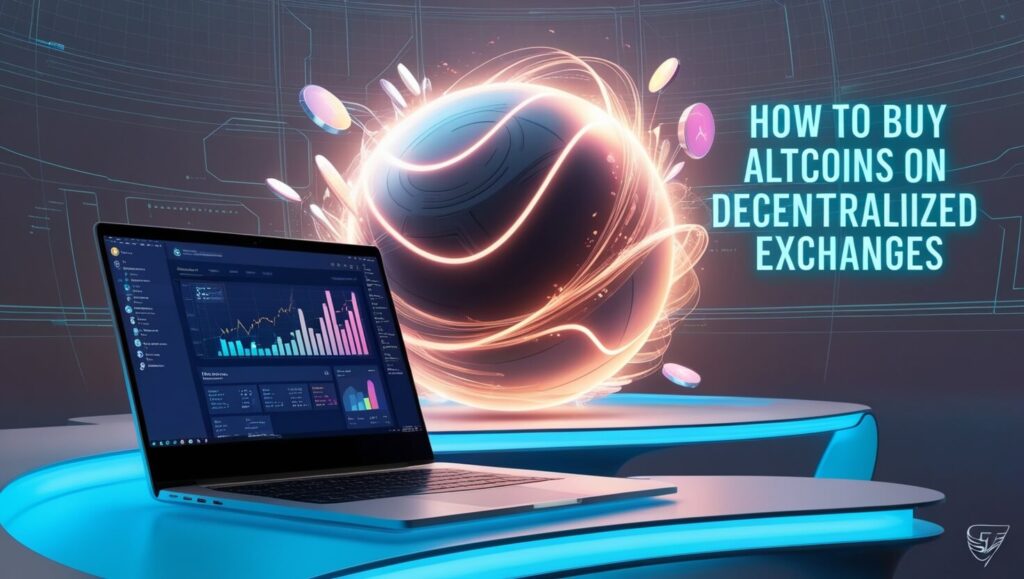
Below is a comprehensive guide on buying altcoins through a decentralized exchange (DEX):
Set Up a Crypto Wallet
Select a Wallet: Get a self-custodial wallet that works with a DEX, such as MetaMask, Trust Wallet, or Coinbase Wallet.
Put Your Wallet In Safe Place: Store the recovery phrase in a secure box to ensure you can retrieve your wallet data after losing it.
Fund Your Wallet
Buy Cryptocurrency: Getting an altcoin requires funds in your wallet. It is best to deposit both Ethereum (ETH) and Binance Coin (BNB) into your account from one of the centralized exchangers like Coinbase or Binance.
Guide To Check Wallet Address: Be sure to double check the wallet address when sending funds so that you do not lose them.
Connect Your Wallet To A DEX
Select A DEX: Access PancakeSwap for Binance Smart Chain tokens or Uniswap for Ethereum based tokens.
Connect Your Wallet: Select the DEX provider on the wallet provider page and allow your wallet to approve the connection.
Select the Altcoin You Would Like to Buy
Glance for the Token: If you wish to buy an altcoin, the DEX’s search option can be used to locate it. If the token you are using is not available, then be sure to use the right contract address from credible websites.
Research Token Information: To evade scams, ensure that the token’s details like the contract address and liquidity are verified for accuracy.
Perform the Trade
Pick Your Desired Amount: Indicate the quantity of your crypto (ETH, BNB, etc.) you would like to swap for the altcoin.
Set Slippage: If there is a high congestion of traffic on the network, some DEXs may need slippage changes (1-3%).
Approve the Transaction: Make sure to check the details of the transaction before permitting the trade on your wallet.
Validate the Swap: After completing the transaction, allow time for the processing to take place on the blockchain. The confirmation of the transaction can be seen in your wallet once you receive the altcoin.
Safekeeping Your Altcoins
Store Quietly: Think about moving your altcoins into a hardware wallet (like Ledger or Trezor) for more protection if you intend to retain them for a long period.
Track Your Portfolio: Keep tabs on your investments using tracking wallets and portfolio applications.
Common Risks & How to Mitigate Them
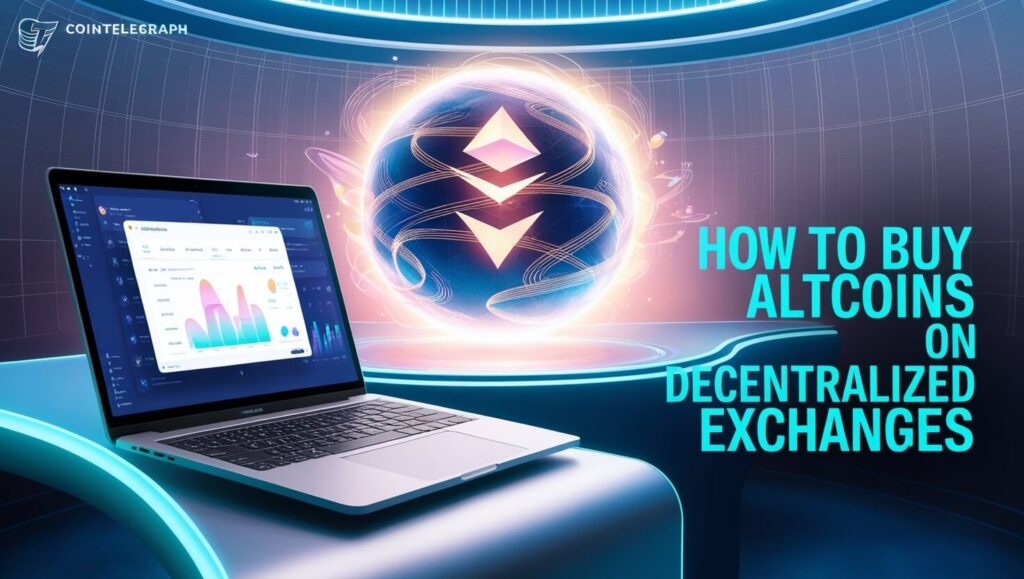
Most Common Risks
Security Breaches: A major risk for exchanges is security breaches and hacks, with assets stores in the exchanges being major targets. The Mt. Gox hack of 2014 and Coincheck’s 2018 breach are some examples.
Phishing Attacks: An entity masquerading as a trustable source to obtain important information is by far the most easiest way to conduct fraud.
Market Risks: The value of cryptocurrency changes unexpectedly which is a major risk to investors.
Operational Risks: An unexpected rise in user activity can cause outages or downtime, both of which are major operational risks.
Liquidity Risks: Trying to buy and sell equities without enough market activity can lead to having liquidity problems.
Mitigating Strategies
Use Strong Security Measures: Strong passwords, regular software updates, and two-factor authentication are essential in keeping assets safe.
Educate Users and Staff: Set aside time to teach staff and users proper security techniques and different forms of phishing scams to reduce chances of falling victim.
Monitor for Suspicious Activity: To struggle with the notion of constantly watching users, having blocking or flagging systems can alert when suspicious activity is detected.
Diversify Holdings: Spreading assets across different exchanges and safe long-term storage solutions like hardware wallets are effective.
Maintain Strong Governance: The acronym KYC is highly important in dealing with strong governance and compliance, aiding in managing strong risks.
Why Buy Altcoins on Decentralized Exchanges?
Control Over Your Assets
Your assets remain in your personal wallet while on DEXs unlike CEXs, which improves the security of your funds. There is no risk of loss through hacking or CEX failures, which remains a significant problem, especially after notable CEX breaches.
Increased Privacy
DEXs have less stringent requirements regarding the provision of personal information, which directly increases privacy. For instance, DEXs let you trade without the need to enter sensitive personal information unlike centralized exchanges that necessarily employ KYC (Know Your Customer) verification procedures. This makes DEXs more appealing for privacy focused users.
Access To A Wide Variety Of Altcoins
The availability of numerous altcoins that do not typically appear on other exchanges is provided on DEXs. Such platforms are usually the first point of listing new tokens during their initial launch, which gives you an upper hand towards new emerging projects.
Decentralization as Security
DEXs are decentralized and function on the blockchain, meaning they are less vulnerable to censorship and hacking. There is no singular entity that can be destroyed by hostile entities, and transactions are authenticated by members of the network which guarantees safety and transparency.
Absence of a Centralized Middleman
In DEX systems, there is no singular authority or middleman who facilitates the trade. Users are less likely to suffer from market manipulation or control of the market, facilitating a more direct and equal trade. Users can now trade with each without having to rely trust a third party.
Self-Censorship Resistance
DEXs are able to function on decentralized networks and this allows them to escape the reach of the government or other authoritative bodies and so they become easier to access in the event of having to survive heavy financial censorship. This is informative for holders located in hostile parts because those individuals can reach world markets un capped.
Clarity and Openess
All transactions made on a DEX are logged onto the blockchain which makes the process completely transparent. Users can independently confirm trades, token listings, and liquidity, which reduces the likelihood of scam or manipulative activity.
Tips for Successful Altcoin Purchases on Decentralized Exchanges
Conduct Thorough Research on Tokens
Prior to investing in any altcoin, consider the fundamentals of the project. Investigate the team, review the whitepaper, evaluate the community, and study the tokenomics framework. Always confirm the token’s contract address to protect yourself from acquiring counterfeit tokens.
Use Trusted DEXs
Limit yourself to established DEXs like Uniswap, PancakeSwap, and SushiSwap. They have a good reputation and a reasonably high traffic volume. Scams are less likely to succeed on these platforms as well, so you can buy confidently.
Check Liquidity
Ensure the altcoin you with to buy has enough liquidity in the market. Poor market liquidity results in poor price execution, high slippage, and great difficulty for execution. Moreover, tokens with low liquidity are generally easier to manipulate.
Adjust Slippage Tolerance
Slippage refers to the difference between executed price and expected price for a transaction. While set within volatile market conditions, it’s wise to set your slippage tolerance lower to prevent attempts from failing, or at a wider range to allow moves on percentage. A good range is usually 1-3%.
Establish your spending limit and observe it.
Exercise caution when transacting with cryptocurrency as the market can rapidly fluctuate; the same goes for trading altcoins. Always inconvenience a set budget for your purchases and do not go beyond your limit. You can also lower risks by diversifying your portfolio.
Limit order trades (if possible) should be reserved.
Certain DEXs provide the functionality of limit order trades which can be placed to buy altcoins at certain prices and gain profits. Rather than paying at the moment, target prices can be set and the order will self-execute at that value.
Always confirm token swap amounts, fees, and slippage.
It’s always better to validate transaction details before approving the swap to avoid issues. You should also confirm the token amounts, prices, and network fees. Paying attention to these details can mitigate common mistakes.
Check gas fees regularly.
Be sure to monitor gas fees because aids like Ethereum can change drastically based on the congestion in the network. It’s best to execute these transactions as the network gets lowered to avoid extra costs.
Secure Your Coins in a Hardware Wallet for Extended Timeframes
After buying some altcoins, you may want to move them to a hardware wallet for long term storage. They are more secure than software wallets because they keep your private keys offline, reducing their chances of getting hacked.
Monitor the Progress of the Tokens in Your Portfolio
Pay attention to the changes involving tokens in your portfolio. Follow the social media accounts of the project team to know if they have released any new features, formed new partnerships, or are facing any challenges which could negatively impact the value of your assets.
Key features of Decentralized Exchanges
Lack of Centralized Oversight
A DEX does not have a centralized body overseeing it. Users interact directly with one other via smart contracts and no third party is involved. This form of decentralization guarantees that no third party can dominate the DEX.
Trading Between Users Directly
Users within a DEX can trade with other users directly with no middleman involved. The DEX merely acts as a venue for bringing together the buyers and sellers; they neither control any assets nor do they partake in the trade.
Self-Controlled Wallets
Upon use of self controlled wallets, a user may manage their private keys and assets freely. This is different to other custodial wallets where centralized exchanges keep control of the user’s funds and accounts. It also minimizes the chance of theft or hacks that target centralized storage.
Open for Trade Verification Audits
DEXs offers unmatched openess for trades as every activity is recorded onto the block chain. The investor can track every detail of a single transaction making the entire process more secured and transparent.
Access to a Wide Range of Tokens
DEXs usually distinguish themselves by expanding the assortment of tokens they offer for trading, including small and new altcoins that may never come to the attention of centralized exchanges. This frequently makes DEXs a popular choice for figuring innovative projects and novel tokens out.
Security
DEXs lower the level of risk of large-scale hacks or exchange shutdowns substantially since the funds of users are not stored with them. Transactions made through smart contracts on blockchains such as Ethereum or Binance Smart Chain is generally more secured in nature.
Privacy
Compared to Centralized exchanges, DEXs do not require much personal data to be shared which makes them more private for the user. In terms of trading transactions, DEXs do not require KYC verification which makes it more suitable for individuals who wish to remain anonymous.
Lower Fees (Sometimes)
DEXs may charge network transaction fees (gas fees), but less operational fees than centralized exchanges that charge extra trading and withdrawal fees. Still not higher than these exchanges, they can become exorbitant when the network is congested.
Censorship Resistance
DEXs definitely have more resistance toward censorship or regulation control, mainly since they do not operate under a central authority which makes it easier for governments to shut them down or block access.
Automation through Smart Contracts
For automated trade execution, DEXs leverage smart contracts. This guarantees that trades are conducted automatically, securely, and without the need for supervision. Human error is reduced, and trades are carried out as intended.
Conclusion
To sum up, purchasing altcoins via decentralized exchanges (DEXs) is a great way to trade cryptocurrency while retaining control of your assets.
With the help of a self-custodial wallet, a DEX can be approached, and transactions can be made carefully. One can easily pace themselves in the world of decentralized trading.
Always remember that research will relieve you of a lot of trouble, and adjusting slippage parameters while being cautious of transaction fees and liquidity will pave the smoother path towards a more rewarding buying experience.
Free from borders and a range of tokens, DEXs do provide a lesser degree of privacy and security. This is why, for your safety, ever reputable platforms and secure storage options should be used to store your altcoins. altcoins are a great way to earn leverage with the right attention, patience, and method on DEXs.



